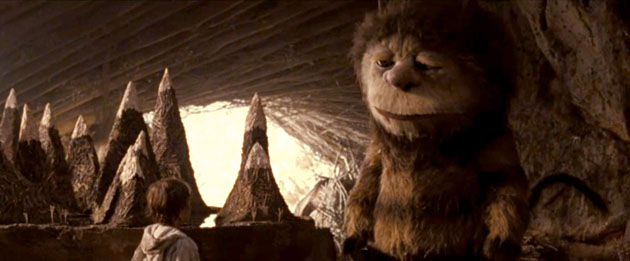K.K. Barrett

AS: Did that transition happen during preproduction?
KK: Just before we started filming. I’d been there for five months. But films are about change. You’ve got to be able to change constantly.
AS: Is that adaptability another characteristic one needs as a production designer?
KK: It is. The best idea wins. If there’s a better idea it should be implemented at all costs. You don’t want to go limping in with, Well, that was our first idea but now it really doesn’t work. And there’s a great idea that we’re missing.
So you’ve got to constantly be ready to change things. What can we sacrifice to make it happen? I make rules but sometimes I break them.
AS: Like “No green”?
KK: Like no green. But I break them. Then next film I’m doing with Spike I’ve already made a lot of rules. It’s a very specific environment. And I know I’ll break them. But all of a sudden I start to see the world because of the things I’d taken away and the things that I’ve constrained.
AS: What kind of a film is the new one with Spike?
KK: I can’t say. Because it’s a very specific environment. (Grins.)
AS: You mentioned once that no one really controls a film, they simply they channel it.
KK: You have to allow for whatever might happen and be able to be loose enough to take advantage of it. Even if it’s a disaster. You’ve got to be able to spin it. An analogy was when I was playing music and somebody would make a mistake and I realized if you repeated that mistake it became a part. You go from taking something that sticks out because it’s wrong to doing it twice and then all of a sudden you’ve celebrated it. It’s like taking someone who can’t sing very well but putting their voice up front in the mix. You’ll get emotion out of it. Filmmaking is very much like that. It’s a constant discovery process.
AS: Say someone was starting out in business, any advice to avoid pitfalls?
KK: I think you should find every pitfall you can find! I think you should fall into every hole you can possibly find!
Two things: Take every job. Never worry about money. Take ones where you can learn from something that you’ve never done before, especially if you’re scared of it. And then do everybody else’s job in your head. And know everybody else’s job. Know what they do and how they contribute and how it affects you. And think it out as if everybody’s gone home and you’ve got to do it all yourself.
Pingback: Grant Major